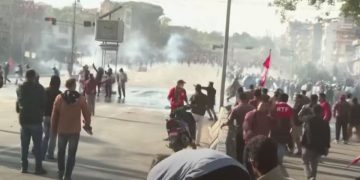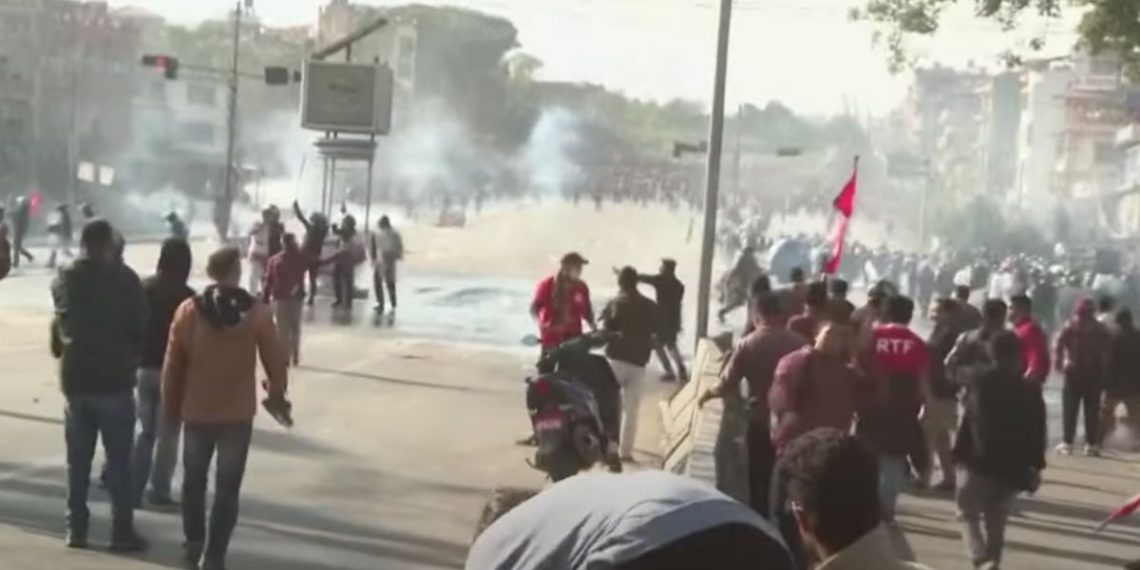A farmer chooses his crops based on the soil, climate and culture where he farms. Different soils and climates are better suited for different kinds of crops. You don’t grow bananas in Wyoming like you wouldn’t grow a crop of cranberries in South Africa.
The same can be said of governments. People rely on tradition to produce constitutions and governments as farmers rely on tradition and science when it comes to their crops. It’s doubtful America would have come up with a federal constitutional republic if the Founders hadn’t come from the Western tradition.
In Nepal, their 239-year-old monarchy was abolished in 2008, according to Reuters. The monarchy was ended by a specially elected assembly to get rid of a Maoist insurgency that “killed 17,000 people between 1996 and 2006.” A federal republic was put in place to restore order.
While the U.S. was celebrating Thanksgiving on Thursday, protesters in Nepal took to the streets to demand the monarchy be restored. The protesters making up the “Citizens’ Campaign” claimed that since the monarchy ended the new government has failed to develop the economy in one of the world’s poorest countries.
Political instability is now becoming a tradition in Nepal. Since the end of the monarchy, there have been “over 10 changes of government,” according to Reuters.
The instability has crippled economic development, among other things. Millions of young people have reportedly had to leave their homeland to find work. The displaced workers end up for the most part in Malaysia, South Korea and the Middle East.
Instability causes unrest. Jitendra Basnet, the top official in Kathmandu, said the “Police only tried to contain a huge anarchic crowd of protesters.” According to Basnet, some police officers were injured when protesters started throwing rocks at them.
For his part, the coordinator of the Citizens’ Campaign, Durga Prasai, claimed about 10 protesters were injured during the protest. He said two protesters were critically injured, according to Reuters.
“We want the republican system abolished and the monarchy to be restored,” Prasai said on Friday.
He then vowed to continue with the effort to restore the monarchy and called for a general strike in Kathmandu. Approximately four million people call Kathmandu home. If a general strike were to occur, it would likely paralyze the city.
One of the people to call Kathmandu home is a man called Gyanendra. He is the last king of Nepal, a Himalayan mountain country nestled between India and China. Gyanendra lives as a commoner with his family, according to Reuters.
Monarchy is a tradition in Nepal. According to Nepal’s Ministry of Foreign Affairs, in the early 7th century, “the first Thakuri king married off his daughter Bhrikuti to the famous Tibetan King Tsong Tsen Gampo thus establishing good relations with Tibet.” You might say monarchy is in Nepal’s cultural bloodline.
The Old Testament and New Testament are full of stories taking place in tribes, city-states and empires. One form of government isn’t preferred. The Bible generally records stories taking place in autocracies and monarchies. Why? Because the biblical authors lived under those types of government more often than not, according to the Center for Christian Civics.
Rome was a democratic republic that resembled more of an aristocracy. But by the time Jesus came onto the scene, the height of the Roman version of democracy was long gone. Governments come and go. God remains.
In Nepal, the vast majority of people are neither Christian nor Western. They do share at least one thing in common with the West. People crave justice — economic and otherwise — and when they don’t get it they become agitated.
Progressives like Maoists know this. According to Reuters, former Maoist rebel chief Pushpa Kamal Dahal is now Nepal’s prime minister. He is the leader of a coalition with the centrist Nepali Congress party. The centrists, presumably, hold Dahal’s Maoist tendencies in check to some degree.
Monarchy, Maoism or federal republic? Which is most natural for Nepal? Which form of government is best for the Nepalese climate? That is for the people of Nepal to decide.
Here at home, we are experiencing our own brand of political unrest. Our constitutional republic — much older than Nepal’s — is being tested by progressives and their globalist allies. The difference is our country was founded as a constitutional republic. It’s natural to the American people. It is best for the people if it stays that way.
Don’t tread on me.
This article appeared originally on The Western Journal.














 Continue with Google
Continue with Google